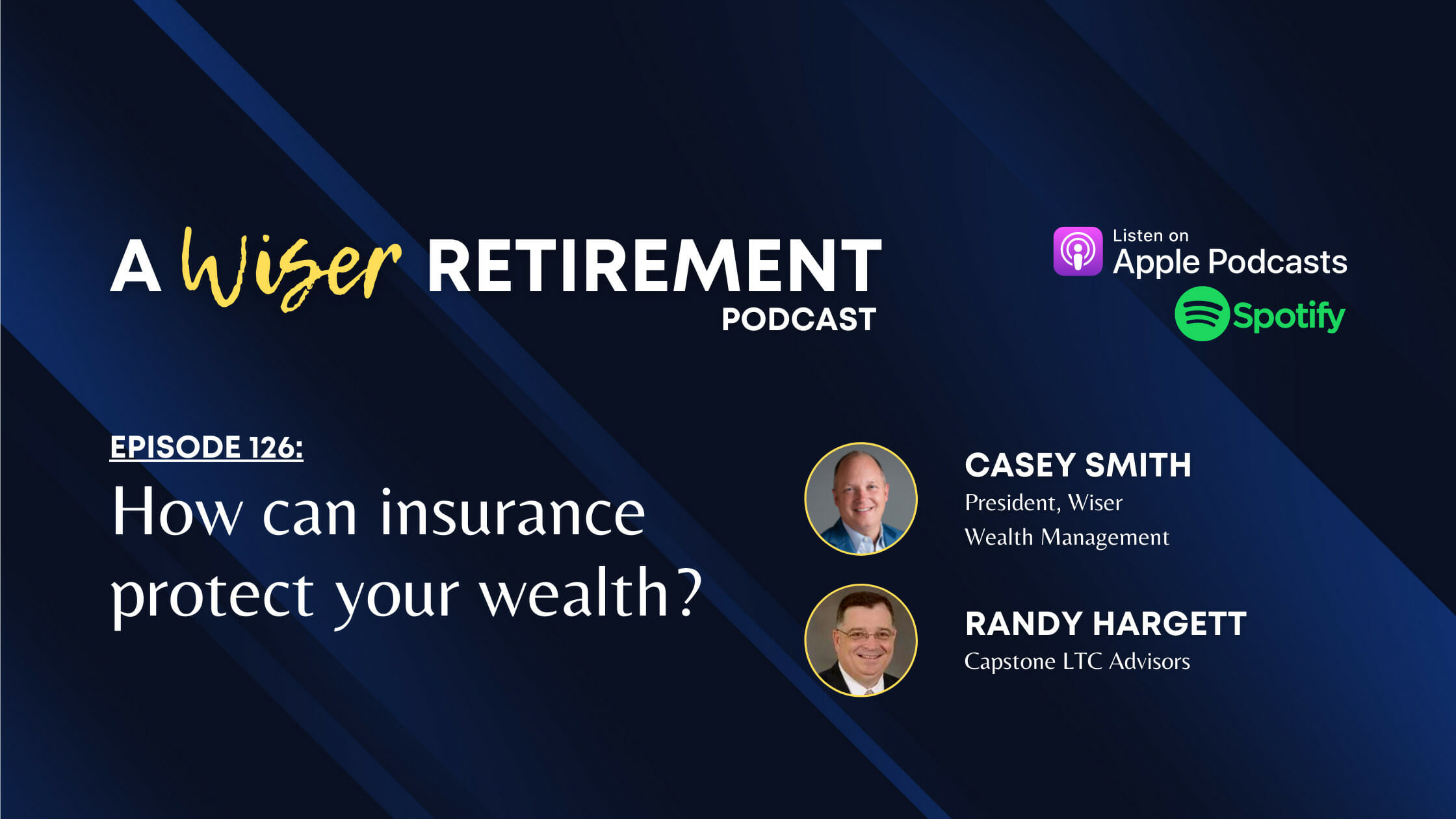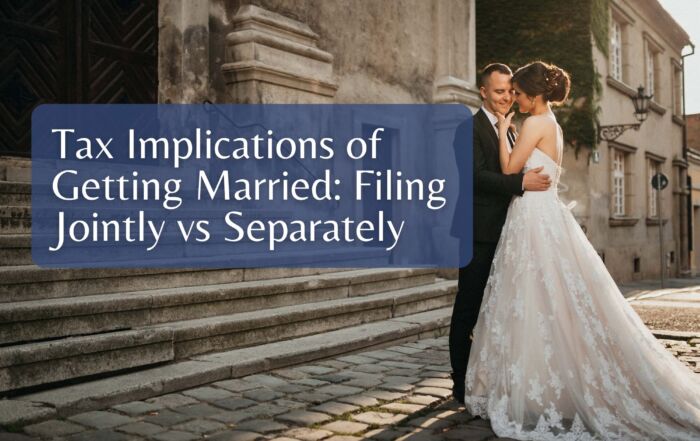
How can insurance protect your wealth?
On this episode of A Wiser Retirement Podcast, Casey Smith is joined by Randy Hargett, owner of Capstone LTC Advisors. Randy was a guest on episode 16 of our podcast back in 2020. He has a wealth of knowledge about long term care insurance and is a RamseyTrusted Provider for the Dave Ramsey show. He is joining us to talk about how insurance can be used to protect your wealth, long term care insurance, and life insurance.
Listen on Apple Podcasts or watch on YouTube:
SUMMARY:
Different Types of Life Insurance
Term life insurance is a life insurance policy that has a limited lifetime itself. It can last anywhere from 5-40 years itself. Choosing the length you want has an effect on the price of the policy. Term life insurance is usually purchased for specific insurance.
Whole life insurance is typically quite costly since it bills the cash value. As you grow that cash value, you have access to it, and can borrow against it. There is a whole industry of people out there that promotes whole life insurance as a way to finance your life if needed.
Universal life insurance is kind of a hybrid between term and whole life insurance. You get to pick the term, which can go until age 120, guaranteeing yourself a death benefit. Universal life does not bill cash value. It is less costly than whole life insurance.
Many people have life insurance in place to replace a retirement income should they not be able to continue toward retirement. Once retirement hits, the need for that particular plan is no longer there.
Why do I need life insurance to protect my wealth?
Life insurance is not one size fits all. A life insurance policy should be purchased for a specific reason. You don’t need to have it just to make you feel good. Some reasons for having it could be to protect your business, protect your wealth, provide an income stream for your spouse, or to leave a legacy. It is really important to identify why you need life insurance, and then design the coverage to meet that need.
Long Term Care Insurance
Many people don’t think about long term care until they are forced to think about it. Long term care insurance can cover things like hospice services, home health care, and adult day care. Purchasing long term care insurance can be very helpful down the road if you end up being in a position to need it. However, if purchasing long term care insurance will force you to change your lifestyle now, then you don’t need to buy it.
When is it too late to get long term care insurance?
When you get past 75 years old, it can be very expensive to get long term care insurance. Ten years ago, the average age for someone getting long term care insurance was 62, but in 2021 the average went down to 53 years old. People are starting to understand the cost of waiting to get this type of insurance. If you can’t decide whether to get it or not, ask yourself these three questions:
- Do you have something to protect?
- Are you healthy enough to qualify?
- Are you at a point in life where you are able to budget for it?
Download our white paper on “7 Steps to Leave a Financial Legacy”
TIMESTAMPS:
0:00 Intro
2:09 Different Types of Life Insurance
12:00 Who needs life insurance?
15:00 Long Term Care Insurance
27:45 When is it too late to get long term care insurance?
LINKS:
Learn more about Casey Smith and connect with him on Twitter.
Learn more about Brad Lyons, CFP®.
CONNECT:
Twitter, Instagram, Facebook, LinkedIn, and YouTube.
Learn more about A Wiser Retirement podcast and access previous episodes.
Share This Story, Choose Your Platform!
Wiser Wealth Management, Inc (“Wiser Wealth”) is a registered investment adviser with the U.S. Securities and Exchange Commission (SEC). As a registered investment adviser, Wiser Wealth and its employees are subject to various rules, filings, and requirements. You can visit the SEC’s website here to obtain further information on our firm or investment adviser’s registration.
Wiser Wealth’s website provides general information regarding our business along with access to additional investment related information, various financial calculators, and external / third party links. Material presented on this website is believed to be from reliable sources and is meant for informational purposes only. Wiser Wealth does not endorse or accept responsibility for the content of any third-party website and is not affiliated with any third-party website or social media page. Wiser Wealth does not expressly or implicitly adopt or endorse any of the expressions, opinions or content posted by third party websites or on social media pages. While Wiser Wealth uses reasonable efforts to obtain information from sources it believes to be reliable, we make no representation that the information or opinions contained in our publications are accurate, reliable, or complete.
To the extent that you utilize any financial calculators or links in our website, you acknowledge and understand that the information provided to you should not be construed as personal investment advice from Wiser Wealth or any of its investment professionals. Advice provided by Wiser Wealth is given only within the context of our contractual agreement with the client. Wiser Wealth does not offer legal, accounting or tax advice. Consult your own attorney, accountant, and other professionals for these services.





